Copyright Update Part 3: Digital Music Streaming Issues.
This paper was written and presented by Tamera H. Bennett at the 28th Annual Technology Law seminar hosted by UTLaw CLE. It has been edited into multiple blog posts. Enjoy Part 3 below, Part 2 here and Part 1.
While music publishers and record labels are fighting their own issues on getting paid (and sometimes against each other), this series of posts focuses on new media recent legal issues facing sound recording copyright owners.
What Are Interactive Locker Services?
If we are not consuming music via non-interactive services like Pandora and Sirius XM or interactive services like Spotify, we are probably listening to the tunes we’ve stored in a music “Cloud.” iTunes Match, Amazon Cloud and Google Play are the leading providers of Cloud storage of music – locker services.
Locker services are either 1) free cloud storage for purchased music such as Apple, Google, and Amazon; or 2) paid locker services which are subscription-based music lockers providing on-demand streaming and downloads and include Spotify, Amazon Cloud Drive, Apple’s iTunes Match, Grooveshark, or the music component of Google Play.
Issues begin to arise with locker services when the services allow someone who did not upload a track the ability to stream and/or download that track. Because a specific track can be selected, the service is “interactive” and direct licenses are required. The paid locker services can attract greater numbers of consumers if they offer varied and larger quantity of tracks for streaming and downloads.
Locker services, when sued for online copyright infringement can always assert the defense known as the DMCA “Safe Harbor.” The Safe Harbor protects online service providers, which include locker and streaming services, from liability for songs posted or transmitted by subscribers to the service if, after receiving what is called a “take down notice,” the locker service promptly removes or disables access to material identified in a copyright holder's complaint. See 17 U.S.C. § 512.
MP3Tunes
The courts continue to make it clear that intentional actions by employees or owners of locker services in uploading unlicensed content will not be tolerated. A U.S. District Court judge in New York ruled in August 2011 that online music locker service MP3Tunes and its founder Michael Robertson were liable for copyright infringement for content they uploaded. Capitol Records, Inc. v. MP3Tunes, LLC, 2011 WL 5104616 *14 (S.D.N.Y. Oct. 25, 2011). The court also held MP3Tunes was not entitled to DMCA safe harbor protection for infringing content that was readily identifiable in DMCA take-down notices from the plaintiff but not removed from MP3tunes after notice was received.
The damage phase continues in the MP3Tunes case into 2015. An original jury award of 48 million was modified by the Judge on September 29, 2014 and on April 14, 2015 the court reduced the judgment to a little more than 23 million. Capitol Records, Inc. v. MP3Tunes, LLC, No. 1:07-cv-09931-WHP-FM, Doc 692 (S.D.N.Y., filed Apr. 14, 2015).
Grooveshark
Locker service Grooveshark was embroiled in litigation battles over the unlicensed songs and sound recordings stored, streamed and downloaded via its locker service. See Capitol Records, LLC v. Escape Media Group, Inc., No. 1:12-cv-06646-AJN-SN, (S.D.N.Y, filed Aug. 30, 2012). Grooveshark let users upload songs that can then be streamed or downloaded by anyone. This is in contrast to locker services such as Google Play, iTunesMatch and Amazon Cloud Player which restrict a third-party from streaming or downloading songs from somebody else’s locker unless a license has been secured with the label and publisher for that specific use. Because Grooveshark is an interactive service, similar to a music-only YouTube, compulsory licenses are not an option and negotiated licenses must be secured.
The only major label that entered into a license with Grooveshark was EMI. Three lawsuits later, EMI terminated their deal with Grooveshark. Id. The labels and publishers have multiple arguments why Grooveshark’s actions constitute copyright infringement and Grooveshark is not protected by the DMCA Safe Harbor provisions. The labels accuse Grooveshark of uploading roughly 100,000 recordings to the online music service, without payment or licenses. Id. In light of the MP3tunes decision, the labels/publishers asserted the employees of Grooveshark were baiting Grooveshark by uploading unlicensed content. Arguably, intentional actions of the employees and/or executives should not be protected by the DMCA.
On March 24, 2015 the judge granted EMI's motion for summary judgement on claims that Grooveshark's parent company Escape Media Group, Inc. infringed its copyrights. See id. at Doc. No 104. Relying on the MP3tunes decision, the court found Escape's repeat infringer policy did not meet the conditions of the DMCA Safe Harbor, Escape had an insufficient record keeping system, failed to terminate repeat infringers, and "actively" prevented copyright holders from collecting information needed for the takedown requests required by the DMCA. See id. Total damages could amount to $420 million based on the court's finding that 2,807 EMI-copyrighted sound recordings existed on Grooveshark's servers.
Until May 1, 2015, music locker service Grooveshark was embroiled in litigation battles over the unlicensed songs and sound recordings stored, streamed and downloaded via its locker service. See Capitol Records, LLC v. Escape Media Group, Inc., No. 1:12-cv-06646-AJN-SN, (S.D.N.Y, filed Aug. 30, 2012).
Grooveshark reached a settlement with labels and the Grooveshark website is down after eight years.



